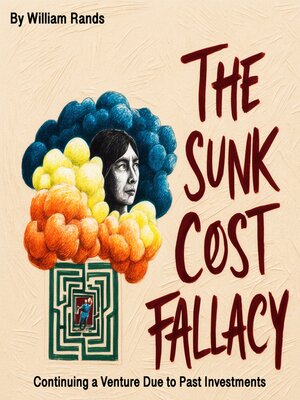The Sunk Cost Fallacy
audiobook (Unabridged) ∣ Continuing a Venture Due to Past Investments
By William Rands

Sign up to save your library
With an OverDrive account, you can save your favorite libraries for at-a-glance information about availability. Find out more about OverDrive accounts.
Find this title in Libby, the library reading app by OverDrive.



Search for a digital library with this title
Title found at these libraries:
| Library Name | Distance |
|---|---|
| Loading... |
The sunk cost fallacy is a psychological phenomenon that influences how people make decisions. At its core, this fallacy occurs when individuals continue investing time, money, or effort into a venture simply because they have already made prior investments, even when it becomes clear that continuing is not the best course of action. The irrational commitment to these past investments often overrides logic, leading to suboptimal outcomes.
The term "sunk cost" refers to resources that have already been expended and cannot be recovered. Examples include the money spent on a non-refundable ticket, the hours devoted to a project that's unlikely to succeed, or the emotional energy invested in an unhealthy relationship. Once these resources are gone, they should not factor into future decision-making. However, human nature frequently drives people to consider these costs as if they can be salvaged, causing them to persist in unproductive pursuits.
The roots of the sunk cost fallacy are deeply tied to human psychology. Loss aversion, a key principle in behavioral economics, plays a significant role. People have a natural tendency to avoid losses, often valuing what they've already invested more than the potential benefits of walking away. Cognitive dissonance further complicates matters, as individuals may find it uncomfortable to admit that their previous choices were mistakes. This discomfort often leads to doubling down on those choices in an attempt to justify them.







